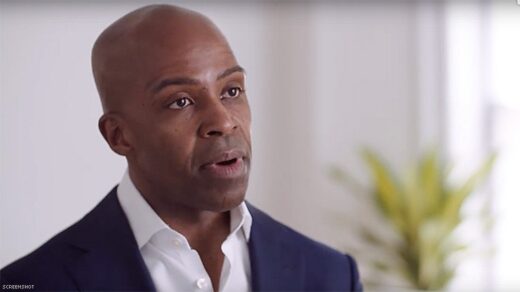Trump ‘two genders’ exec order will hurt millions of Americans: study
Author: Trudy Ring
Donald Trump’s executive order stating that the federal government will “recognize only two sexes, male and female,” has the potential to affect millions of Americans, and mostly negatively.
Keep up with the latest in LGBTQ+ news and politics. Sign up for The Advocate’s email newsletter.
But some effects of the order will take time to implement, and some antidiscrimination protections can’t be undone quickly, notes a new report from the Williams Institute, a think tank on LGBTQ+ issues at the University of California, Los Angeles, School of Law.
“The true impact of President Trump’s executive order will take time to fully understand. Implementing the directives will face federal procedural constraints and will almost certainly be subject to extensive litigation,” Elana Redfield, lead author of the report and federal policy director at the Williams Institute, said in a press release. “Regardless of the outcomes, there are likely to be negative effects on the mental health and well-being of LGBTQ individuals, particularly the transgender, nonbinary, and intersex Americans most directly affected by these policies.”
The Williams Institute estimates that 1.6 million people aged 13 and older are transgender, and 1.2 million LGBTQ adults identify as nonbinary. As many as 5 million Americans may be intersex, according to the U.S. Department of Health and Human Services.
Key areas that the order will affect include nondiscrimination policies, federally issued identity documents, prisons, and other sex-separated spaces, the Williams Institute explains.
Trump “has instructed agencies to review ‘laws governing sex-based rights, protections, opportunities, and accommodations’ to ensure they ‘protect men and women as biologically distinct sexes,’” a summary of the report states. “This includes a directive to the Attorney General to ‘immediately issue guidance to correct’ what is described as a ‘misapplication of the Supreme Court’s decision in Bostock v. Clayton County (2020)’ to allow transgender people to participate in sex-separated spaces based on gender identity.”
In Bostock, the Supreme Court ruled that discrimination based on sexual orientation or gender identity is a form of sex discrimination and therefore outlawed by Title VII of the Civil Rights Act of 1964. The ruling applied to job discrimination, but in President Joe Biden’s first day in office, January 20, 2021, he directed federal agencies to evaluate whether this definition should be used in the enforcement of other laws, such as Title IX of the Education Amendments of 1972, the Fair Housing Act, Section 1557 of the Affordable Care Act, and others. Many agencies agreed to interpret the laws in this way.
“The new administration seeks to reverse these interpretive documents and formally redefine these laws to exclude coverage for gender identity (and likely sexual orientation),” the Williams Institute notes.
“However, there are barriers that may slow down or block the implementation of these changes,” the summary continues. “For example, formal rulemaking procedures would be required to make longstanding changes to the definition of sex under these statutes, and the way that definition is enforced. It is also important to note that many nondiscrimination laws have been interpreted by courts to protect LGBT people, including access to gender-affirming bathrooms, and the administration’s actions cannot automatically undo those protections. Additionally, many states offer protections against discrimination in areas such as housing, employment, and public accommodations.”
Regarding federally issued identity documents, the State Department has already implemented the order. Newly confirmed Secretary of State Marco Rubio sent out a memo to staff Thursday saying the department will no longer issue passports with an X marker instead of M or F, as it began to under Biden, and he directed staffers to cease processing any applications for these. Also, passport holders will no longer be able to change the gender marker from M to F or vice versa. Existing passports with an X marker will remain valid, but when holders renew them, they will have to choose M or F.
The executive order further directs federal prisons to place trans women in men’s prisons and to deny them gender-affirming health care. The Biden administration had allowed consideration of prisoners’ applications to be housed according to their gender identity and receive appropriate health care — and even the previous Trump administration permitted this. “This practice was also consistent with longstanding guidelines to prevent prison sexual abuse,” the Williams Institute explains. There are an estimated 1,538 trans women and 750 trans men in federal prisons, according to the Federal Bureau of Prisons.
But there are some protections in place. Notably, the Supreme Court has established that federal prison officials have an obligation not to act with ‘deliberate indifference’ to the health and safety of transgender prisoners, which could be a barrier to the success of President Trump’s policy goal,” the report states. “Additionally, state laws and court decisions regarding access to health care in prisons may also serve as a barrier.”
Protections for trans women have already been removed from the guidelines for enforcement of the Prison Rape Elimination Act.
Regarding sex-segregated spaces, the order seeks to assure that these, “such as homeless shelters and intimate partner violence shelters, or ‘intimate spaces designated for women, girls or females (or for men, boys or males)’ funded or operated by the federal government ‘are designated by sex and not identity,’” the Williams brief states.
Trans people are disproportionately likely to experience homelessness or intimate partner violence. “Trump previously attempted to enact a rule that would bar transgender women from women’s shelters; however, that rule was quickly rolled back by the Biden administration before implementation,” the Williams Institute notes.
The order doesn’t specifically address restroom use, sports participation, health care, or data collection, but it seems to be aimed at these areas, according to the report. “Regardless of what actions are taken, the implementation of this order is likely to come unevenly — for example, a bathroom ban for federal buildings or employees may be possible to implement quicker if it is found to be feasible to implement without rulemaking, whereas many of the changes described above would require agencies to take actions such as formal rulemaking,” it states. “Many of the provisions of this order, or the corresponding agency actions, will likely also face substantial litigation.”
“President Trump’s attempt to redefine the word ‘sex’ for the purposes of federal law to narrowly refer to certain reproductive characteristics could have a range of consequences,” the summary concludes. “While the actual details and realities of implementation will take some time to understand, research shows that efforts such as these can negatively impact the mental health of transgender people.”
From Your Site Articles
Original Article on The Advocate
Author: Trudy Ring





